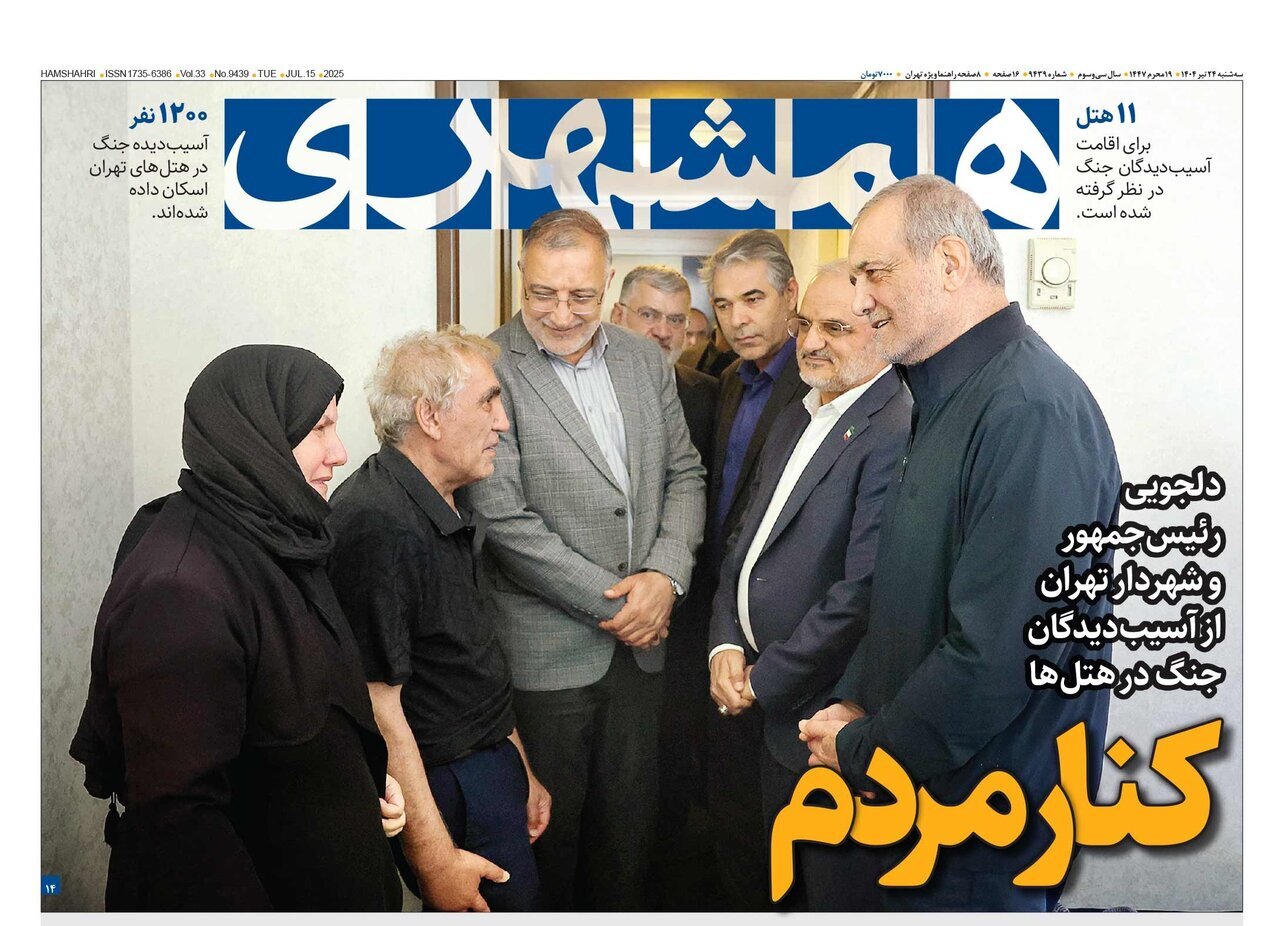Snapback mechanism, a political tool to revive European role

TEHRAN - Hamshahri analyzes threat by the Europeans to activate the snapback mechanism: For some time, three European countries that are members of the JCPOA have been threatening Iran and claiming to be ready to activate the so-called snapback mechanism.
This claim, which is political and aimed to pressure Iran, will certainly not be without cost for the Europeans. Following recent political and security developments, especially the 12-day invasion of Iranian territory by the Zionist regime, the old but sensitive discussion of "implementing the snapback mechanism" has been revived at the international level and in European circles. A mechanism that, based on Security Council Resolution 2231, allows for the rapid and automatic return of international sanctions against Iran. According to Araghchi, the three European countries think that the snapback tool gives them the power to play a role in the Iran nuclear issue. But this is a misconception, and if these countries move towards activating snapback, it will make resolution of the Iran nuclear issue more complicated; a mistake that the Americans made by resorting to military option.
Siasat-e-Rooz: A security link
Siasat-e-Rooz devoted its editorial to the trilateral meeting between the interior ministers of Iran, Iraq, and Pakistan in Tehran and wrote: In line with convergence with neighbors, the meeting in Tehran between the interior ministers of Iran, Iraq and Pakistan, can ultimately pave the way for effective security decisions. The West has failed to implement its goals despite its strong backing for the Zionist regime. Given this reality, the West is seeking to redefine a new function for terrorism to undermine regional security. The movements of terrorist groups from Pakistan to some regions of Iran, as well as strengthening the role of ISIS in Iraq, make convergence among regional countries more imperative in countering terrorism. Tehran is now trying to use an interactive approach with all neighboring countries, emphasizing the need for a united front against terrorism, and to place its capacities and facilities at the service of regional countries in the fight against terrorism. The holding of the trilateral meeting is a sign of Iran's determination and commitment to its neighbors, especially in fighting terrorism.
Ham Mihan: Activating snapback sanctions will further strain Tehran-West ties
Ten years have passed since the signing of the JCPOA between Iran and six world powers. If the commitments of the JCPOA had been carried out according to the agreement, today the Iran case would have been in a normal state in the Board of Governors of the International Atomic Energy Agency, and in incoming fall, all previous Security Council resolutions would have been canceled forever. But in 2018, Donald Trump withdrew the U.S. from the agreement. In Donald Trump’s second administration, although indirect negotiations began between Iran and the United States for a new nuclear agreement, it seems that the Western parties, including the United States and the three remaining European countries still party the JCPOA, no longer accept the common principles that led to the conclusion of the JCPOA. Western countries insist that Iran must give in to their maximum demands and permanently stop enriching uranium. European countries have threatened that if Iran does not respond positively to their demands to abandon and completely halt its nuclear program, they will activate the snapback mechanism, which could change relations between Iran and the West for a long time and make them much more tense than ever.
Iran: Beijing’s new role
In an article, the Iran newspaper discussed Araghchi’s visit to China and said: The purpose of this visit is that Iran, on one side, is looking to its eastern partners as permanent members of the Security Council, and on the other, it is trying to revive multilateralism capacities, especially in the form of institutions such as the Shanghai Cooperation Organization and BRICS. The growing tensions with Europe, especially in the wake of repeated threats to activate the snapback mechanism, have practically reinforced the perception that Tehran no longer considers Europe as neutral or even effective actor in the process of revitalizing the JCPOA. As the Foreign Ministry spokesman warns, referring to the failure of European countries, resorting to this mechanism in the current circumstances would mean practically eliminating them from the negotiation process. This is not only undesirable for Iran, but could also lead to a direct disadvantage for Europe in future equations. In this context, the scenario of China's more active entry into the case could be an effective step; a step that, if realized, could create a new model of nuclear diplomacy.
Leave a Comment